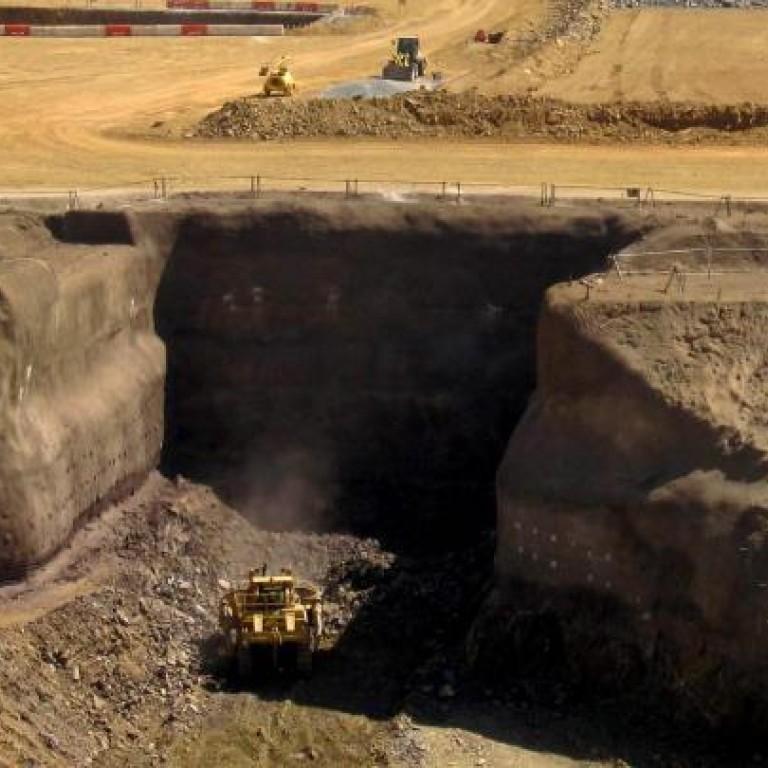
Clive Palmer comes the iron man with Citic Pacific
Relations between the Australian mining billionaire Clive Palmer and the Hong Kong-listed but state-owned Citic Pacific are not getting any better. Their dispute centres on what can best be described as the "troubled" Sino Iron Ore project in Western Australia.
In 2006, Palmer sold Citic the right to mine magnetite iron ore in the Pilbara region in exchange for royalty payments. Citic agreed to build the infrastructure, but the "deal of the century", as analysts call it, because it heavily favours Palmer, has taken a heavy toll on Citic. The original budget of US$2.5 billion has soared to US$8 billion and could reach US$10 billion. That is not counting the bungled US$2 billion attempt at hedging the company's Australian dollar risk that cost chairman Larry Yung Chi-kin his job.
The project is about three years late, and Palmer says Citic owes his company Mineralogy HK$1.58 billion as a penalty payment. Although Citic has provided for a HK$1.52 billion liability in its annual accounts, it is disputing the claim on the basis of unspecified exception clauses in the original contract, according to .
Citic "is trying to avoid payments … because it is in financial difficulties," Palmer said in a press release yesterday. He also accused Citic of unfairly blaming Metallurgical Corporation of China, which won the contract for building the project's infrastructure.
Most of these contracts, he says, have been awarded to "Australian contractors, most of whom were friends of the Australian staff of Citic Pacific employed in Western Australia to run the project."
Unsurprisingly, the two sides are involved in a number of court cases over this. Suing the Chinese state does not sit well in Beijing, so it is going to be to interesting to see how Palmer's plan to build a replica of the Titanic in a mainland shipyard is going to develop. Cynics say this project could be sunk before it even sets sail.
China Shenhua Energy put on a fine display at its recent results press conference. This is not because it splashed out in a display of opulence that befits the mainland's largest coal producer. Quite the opposite. There was a simple backdrop to the stage instead of the usual picture of the front page of its annual report. There were no flowers, no name plates for company executives. There was no multi-coloured press release, and no copy of the annual report handed out.
Some wondered if something was wrong. But everything was fine. Indeed, the new style for its press conference was deliberate, since it reflected the new thinking for these events. The company secretary explained as the conference got under way that Shenhua was keen to take on board President Xi Jinping's advice to cut back on unnecessary expenditure and needless displays of wealth. Other noted that if Shenhua really wanted to cut back on expenses, the best thing it could do would be to move its event to a cheaper hotel.
The courier FedEx Express is sprucing up its image with the introduction of 10 new all-electric vans for use in Hong Kong. "This is a milestone for FedEx in Asia Pacific. The deployment of the new zero-emission all-electric vehicles demonstrates FedEx's commitment to delivering industry-leading innovation, while reducing our environmental impact," boasted David Cunningham, president of FedEx Asia Pacific.
We shouldn't moan, but while the vehicles may be emission-free, the production of electricity isn't. The process is getting cleaner, but coal still accounts for 50 per cent of CLP Holding's fuel mix.
A factoid of interest courtesy of the website Quartz. Although the Port of Los Angeles is one of the biggest in the United States, accounting for 40 per cent of US port traffic, about half of the containers that were shipped out of the port were empty, according to port data. The reason for this is that the US imports a good deal more than it exports - a function of its trade deficit.
However the repositioning of empty containers is a complex business and costs US shippers US$16 billion a year, according to Dr Jean-Paul Rodrigue, who discusses the matter in his book .

